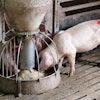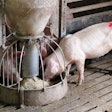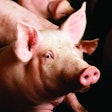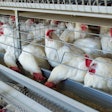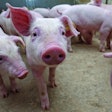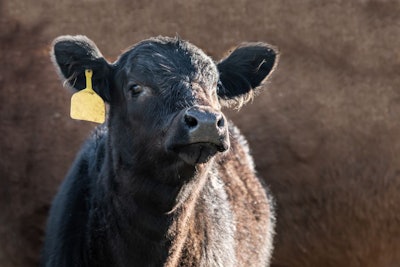
Immune-boosting animal feed additive could offer performance-enhancing benefits in beef cattle
It’s not yet clear how it works, but an animal feed additive that purports to offer immune-boosting qualities may in fact improve calf growth in beef cattle.
A two-year study from the University of Arkansas, Oklahoma State University and Iowa State University yielded what one author described as “surprising” results for beef cattle fed a Phibro Animal Health supplement called OmniGen-AF. Although the supplement did not increase immunity to bovine respiratory disease, calves that received the additive grew faster than those that did not.
Prior research had shown similar performance-enhancing effects in dairy cows, according to Paul Beck, a beef cattle extension specialist at Oklahoma State University and one of the authors on the paper. A 2005 study found that the same product, OmniGen, increased milk production and persistence when fed to Holstein cows raised in warm climates. While enhancements in dairy performance are typically easier to measure, Beck said, the results of those previous studies triggered an interest in testing the product in beef cattle.
Although the calves that received the supplement initially showed no difference from those that did not, in the late summer, calves fed OmniGen gained an average 6.8 kg more from July to weaning, according to the researchers’ report, published this month in the Journal of Animal Science. Cows that received the supplement during the trial also had lower core body temperatures, suggesting the additive may improve the animal’s ability to cope with heat stress, resulting in greater calf growth and improved animal welfare.
“I’m not sure that we know why we’re seeing the pretty significant improvements as far as heat tolerance,” Beck said, “but we’re pretty sure the increase in production we saw was tied to a benefit in lower core body temperature.”
Other additives — yeast products for example — have shown similar performance-enhancing results in other trials, Beck said. But although the OmniGen formula includes brewers dehydrated yeast alongside a blend of other minerals and vitamins, that doesn’t appear to be the active ingredient in this case. Yeast, according to the report, has not shown the same modulating effect on body temperature in other trials.
More research will be necessary to determine the exact mechanism by which the supplement works, Beck said.
However, he said the trial suggests there might be something to the myriad emerging additives that claim immune and performance-enhancing benefits, even if researchers can’t explain the basic science behind them just yet.
“All the time, we come up with products or compounds that look really good in the lab, and we can identify possible modes of action, but when we put them in to the field, they’re not effective,” Beck said. Meanwhile, “we’re looking at things all the time that are not supported by research, but at the same time we have all this anecdotal evidence that they’re wonderful products.
“If we can look at these production-scale studies and then tie them back to the more basic research and look at the mechanisms, that goes a long way to identify what really works, and separating those things that are just hype and may not work.”
Another positive development, Beck said, is that feed buyers are growing more discerning, encouraging additive manufacturers like OmniGen maker Phibro Animal Health — which funded in part the research into its product — to sponsor scientific research and data collection, internally and at the university level. Any animal feed additive should have data to back up its claims, Beck said, and producers increasingly expect to see it.
“The times of companies relying solely on side-by-side demonstrations — I think those days are getting behind us,” Beck said. “People do listen to other producers, but I think they also like to see the data and know the economics.”

